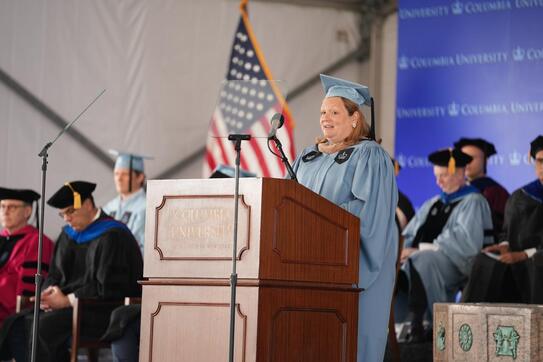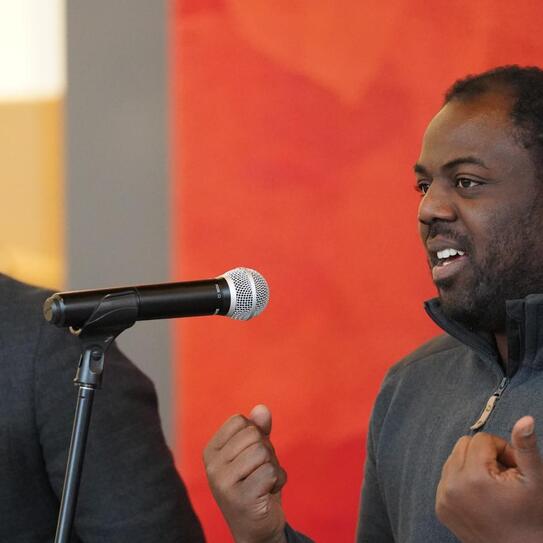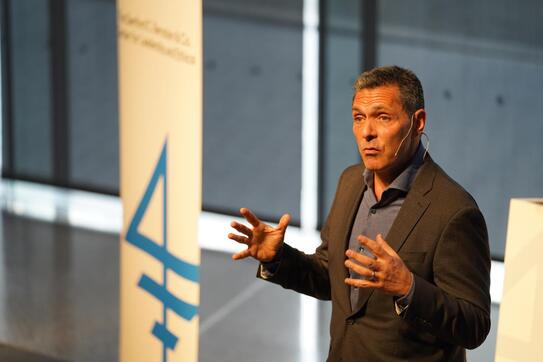CBS Graduation 2023: Highlights from the Spring Recognition Ceremonies
A collection of images from the recognition ceremonies for PhD, EMBA, MBA and MS programs. Congratulations to the Class of 2023!
Graduation 2023: Early Career Tips for Business School Grads
CBS Distinguished Speaker Alisa Amarosa Wood ’08 shares advice for MBA graduates embarking on their post-grad career journey — along with insights about what to expect along the way.
The Deming Cup 2023 Call for Nominations
Awarded annually since 2010, the Deming Cup recognizes exemplary leaders for outstanding merit in operations following Deming's principles. This year's Deming Cup will be held Tuesday, October 24.
Scene @ CBS
A collection of images from significant Columbia Business School conferences and events such as the Alleycon 2023 Conference, 19th Annual Healthcare Industry Association Conference, Launch of the 100/50: Embracing Our Legacy campaign, and more.
Democratizing Sustainability Through Technology
Donnel Baird ’13, CEO and founder of BlocPower, joined Columbia Business School Professor Bruce Kogut as part of the Business, AI, and Democracy initiative’s BAID @TheHub speaker series.
In Memoriam: Professor Charles M. Jones
The beloved Columbia Business School professor passed away at the age of 56 last December.
Postcards from Heaven
In his 7th-floor office in Henry R. Kravis Hall, economist Tano Santos curates a rotating exhibition of art postcards he's collected for 40 years.
Expanding Entrepreneurship Ecosystems
CBS’s Inclusive Entrepreneurship Initiative seeks to build venture ecosystems in the communities around the School.
Business Ethics Prize Goes to KIND Snacks Founder Daniel Lubetzky
Lubetzky was honored at a ceremony in David Geffen Hall last April.








